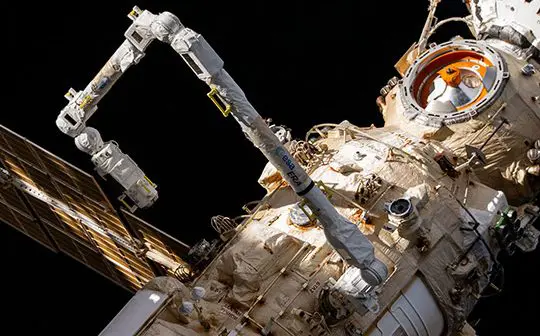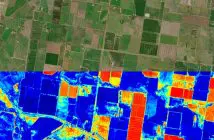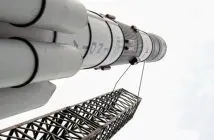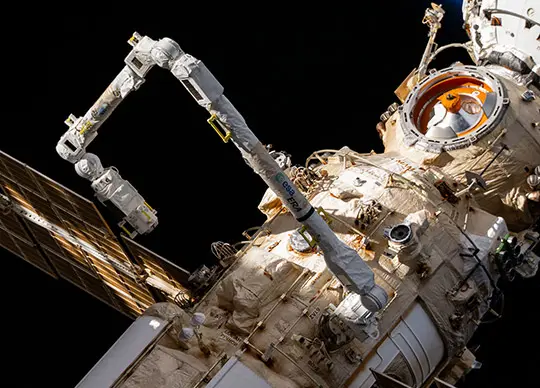
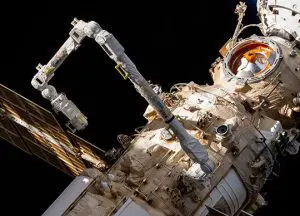
Image: The European robotic arm (ERA) is pictured extending out from the Nauka multipurpose laboratory module during a mobility test several days after Roscosmos cosmonauts Oleg Artemyev and Denis Matveev activated the ERA during a seven-hour and 42-minute spacewalk on April 28, 2022. Credits: NASA.
NASA will provide live coverage on Friday, Sept. 2, of a spacewalk with two Russian cosmonauts to continue outfitting the European robotic arm on the International Space Station’s Nauka laboratory.
Coverage will begin at 9 a.m. EDT on NASA Television’s Media Channel, the NASA app, and agency’s website. The spacewalk is scheduled to begin around 9:20 a.m.
NASA also will air an Artemis I prelaunch briefing on NASA TV’s Public Channel at 9 a.m. Once the Artemis briefing concludes, spacewalk coverage will air on both the Media and Public Channels.
Spacewalk coverage and the Artemis briefing will be available to watch online at: https://www.nasa.gov/live
Expedition 67 Commander Oleg Artemyev and Flight Engineer Denis Matveev, both of Roscosmos, will exit the station’s space-facing Poisk module. The primary objectives of the spacewalk are to relocate an external control panel for the arm from one operating area to another and test a rigidizing mechanism on the arm that will be used to facilitate the grasping of payloads.
Artemyev will wear a Russian Orlan spacesuit with red stripes, while Matveev will wear a Russian Orlan suit with blue stripes. This will be the eighth spacewalk for Artemyev and the fourth for Matveev.
Friday’s spacewalk will complete unfinished tasks from a spacewalk Aug. 17, which was cut short after Artemyev’s spacesuit showed abnormal battery readings about 2 hours and 17 minutes into the spacewalk. Artemyev and Matveev completed the installation of a pair of cameras on the arm and removed parts attached to the arm’s end effector before the spacewalk ended.
The European robotic arm will be used to move payloads and equipment outside the Russian segment of the station, joining the Canadian-built Canadarm2 robotic arm and the Japanese arm already supporting station maintenance, operations, and research.

